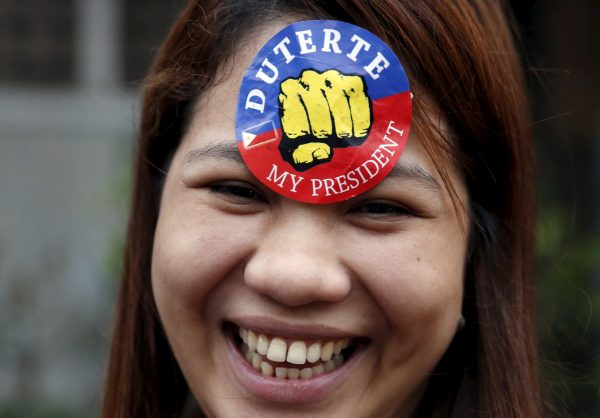The new Duterte administration has focused on drastically reducing the country’s drug problem and corruption in government. It has also prioritised advancing the ongoing peace process with Communist groups and the Muslim Bangsamoro groups. Police and armed forces are also continuing to pursue the Abu Sayyaf Group, a jihadist terrorist organisation.
On the economic and social fronts, the Duterte administration aims to reduce poverty by liberalising investments and focusing on agriculture, food processing and infrastructure. These reforms are aimed at increasing employment, reducing poverty in rural areas and improving infrastructure to alleviate bottlenecks across the land, sea and air transport systems. The proposed 2017 budget allocates up to 5 per cent of GDP for infrastructure spending. To meet this infrastructure target, the government has filed a congressional bill granting emergency powers to the Secretary of Transportation to bypass regulatory impediments as well as facilitate the bidding of contracts and procurement of materials and equipment.
But to pave the way for increasing infrastructure investment, the overall capacity of both public and private sector contractors needs to be revved-up.
In terms of the broader economy, Duterte has signed off on a 3.35 trillion peso budget (approximately US$153 billion) for 2017, an 11 per cent increase on the previous year’s budget expenditure. This increase in spending is to be met by proposed tax reforms targeting up to 1 trillion pesos in additional tax revenue by 2018–2019. But so far the tax proposals that increase the tax rate have been questioned by Congress while tax reductions have gained support. Even if the majority of Congress becomes aligned with the PDP-Laban party, the general lack of discipline in party politics means successful reform is not guaranteed.
The government has also proposed a 10-point basic socio-economic agenda, which aims to increase employment, reduce poverty, improve education and health as well as build up infrastructure to increase efficiency and productivity. But some aspects of the agenda have not been well aligned. With many unemployed or underemployed, stricter labour rules are being implemented to make contractual labour arrangements illegal or difficult to obtain. Likewise, the Philippines is rich in mineral resources but responsible mining is not being promoted. Land use policy is ill-defined, meaning that government agencies and local government units have overlapping authority structures.
There are also uncertainties that have been brought about by remarks made by Duterte and various cabinet members on the Philippines’ foreign policy and economic reform that could affect investments in certain areas. These remarks have been neither confirmed nor denied by the National Economic Development Agency (NEDA) or Duterte. While this can be attributed to initial internal conflict in the Cabinet as part of its learning curve, it has promoted a degree of uneasiness and uncertainty.
Creating further uncertainty is the question of what the policies of US President-elect Donald Trump will be on trade in goods and services and, of course, investment. The Philippines would be hit hard by any economic turbulence caused by Trump or further discontent in developed countries.
Looking to 2017, the Philippine Congress is due to convene as a Constituent Assembly to amend the 1987 Constitution. Duterte’s administration is proposing the Philippines adopt a federal form of government, but the exact details of this new political model remain unknown. What’s more, the budgetary aspect of this proposal will be difficult because only a few of the proposed federal states are fiscally sustainable.
On a more positive note, the government anticipates that a federal system could help resolve the question of creating an autonomous Bangsamoro state, establishing a more sustainable peace and furthering development opportunities.
The other constitutional reform proposed is to liberalise inbound foreign investment by removing restrictive provisions in the Constitution. In terms of the ownership of land, Duterte has reiterated that the existing law will remain, meaning that foreigners will still be allowed up to 40 per cent ownership and to lease for up to 75 years.
One of the most restrictive provisions in the Constitution concerns the ownership and operation of public utilities. In 2012, the Supreme Court decided that foreign ownership cannot exceed 40 per cent of a public utility’s common stock but did not rule on other forms of shares. In 2016, the Supreme Court decided that foreign entities can own a majority of preferred shares without voting rights. In other words, foreign investors’ voting control is limited, but not with reference to benefits from investment in non-voting capital shares and up to 40 per cent of common voting shares. With this ruling, foreign investors can invest more in public utilities such as telcos, toll roads, and rail — but management and operations will remain with Filipino citizens.
With the Duterte administration presenting Congress with an agenda full of fundamental changes, a careful and rigorous follow up on progress at these various fronts will be necessary over the coming years.
Cesar Virata is Principal of C. Virata & Associates and former prime minister of the Philippines.
This article is part of an EAF special feature series on 2016 in review and the year ahead.

